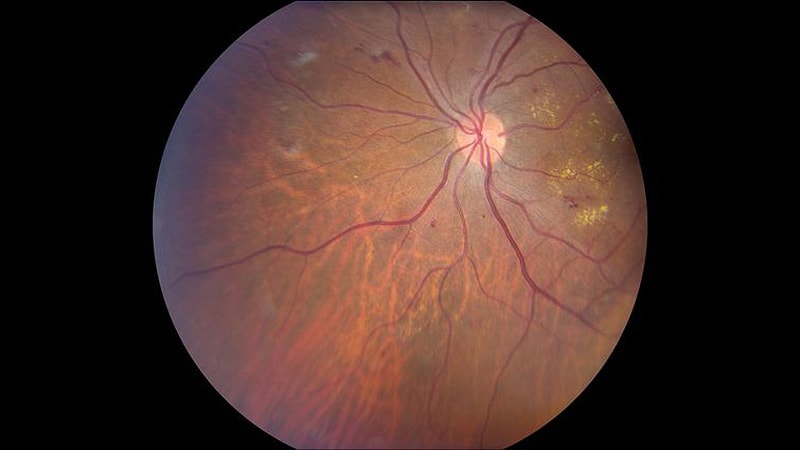Takeaway
- In patients with active thyroid eye disease, teprotumumab demonstrated significant improvement in proptosis response, clinical activity score, diplopia response, and overall response compared with placebo.
Why this matters
- Thyroid eye disease is a debilitating, disfiguring, and potentially blinding periocular condition for which no approved medical therapy is available.
Study design
- OPTIC trial of 83 patients with active thyroid eye disease, who were randomly assigned (1:1) to receive intravenous teprotumumab infusions (n=42) or placebo (n=41).
- Primary outcome: proptosis response at 24 weeks.
- Secondary outcomes: changes in overall response, a Clinical Activity Score of 0 or 1, proptosis response, a diplopia response and in overall the Graves’ ophthalmopathy-specific quality-of-life (GO-QOL) score across trial visits.
- Funding: Horizon Therapeutics.
Key results
- At 24 weeks, the proportion of patients with a proptosis response was higher in teprotumumab vs placebo group (between-group difference, 73 [95% CI, 59-88] percentage-point).
- At 24 weeks, teprotumumab vs placebo group had significant improvement in:
- overall response (between-group difference, 71 [95% CI, 56-86] percentage-point),
- Clinical Activity Score of 0 or 1 (between-group difference, 36 [95% CI, 17-55] percentage-point),
- proptosis (between-group difference, −2.28 [95% CI, −2.77 to −1.80] percentage-point) and diplopia (between-group difference, 39% [95% CI, 16-63] percentage-point) response and
- GO-QOL overall score (between-group difference, 9.36 [95% CI, 4.08-14.64] percentage-point; P≤.001 for all).
- The reduction in proptosis was associated with a reduction in extraocular muscle volume, orbital fat volume, or both in 6 patients in the teprotumumab group who underwent orbital imaging.
- Teprotumumab group had mild or moderate adverse events; 2 serious events were reported, of which 1 (an infusion reaction) led to treatment withdrawal.
Limitations
- Lack of long-term follow-up.
References
References

